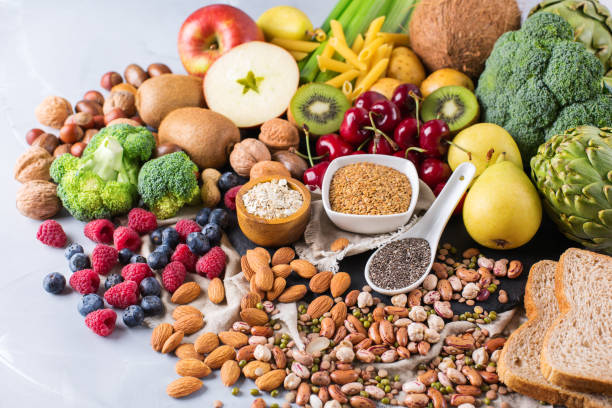A fortified immune system is the body’s natural shield against infections, chronic illnesses, and everyday health challenges. While supplements can help boost immunity, the food we eat daily has an even higher potential to keep our defence system.
Building immunity through diet is a cost-effective method that keeps diseases away and sustains long-term wellness.
Citrus Fruits: Vitamin C Powerhouses
Citrus fruits—oranges, lemons, grapefruits, tangerines, and limes—are rich in vitamin C, a nutrient central to white blood cell production. These cells are frontline defenders against infections. The World Health Organisation (WHO) emphasises that a diet heavy with fruits reduces the risk of non-communicable diseases and supports immune function
Leafy Green Vegetables
Spinach, kale and pumpkin are packed with nutrients like vitamin C, iron and folate that boost immunity. Folate in leafy greens helps form new cells and repair DNA, while iron supports oxygen transport to immune tissues. For maximum benefits, cook them over light heat to preserve their nutritional content.
Garlic and Ginger
Garlic has served for centuries as a medicinal food. Its active compound, allicin, has “antimicrobial” and immune-boosting effects, making it a helpful deterrent against colds and infections. Both can be used for cooking or eaten raw. A growing body of research shows that garlic and ginger fight inflammation and support heart health.
Yogurt and fermented Foods
A large portion of the immune system resides in the gut. Consuming probiotic-rich foods like yoghurt, kefir, fermented soybeans, and traditional foods such as ogi or nunu enhances gut microbiota balance, which strengthens immune signalling. Probiotics stimulate the production of natural antibodies and improve immune cell activity.
Nuts and seeds: Vitamin E and zinc
Almonds, walnuts, sunflower seeds, pumpkin seeds and groundnuts are nutrient-dense snacks rich in vitamin E, a powerful antioxidant that supports immune cell function. They are also excellent sources of zinc, a mineral essential for wound healing. A handful of nuts or seeds daily can help supply vitamin E.
Protein: Omega-3s and amino Acids
Protein is the building block of immune cells. Fish such as mackerel, sardines, and salmon provide omega-3 fatty acids. immune system. Locally available protein sources like beans, eggs, and poultry also provide needed amino acids. The Food and Agriculture Organisation (FAO) reports that adequate protein intake is directly linked to immune competence and recovery from illness.
Local superfoods
Bitter leaves, locust beans (known as Iru in Yoruba) and tiger nuts are indigenous foods that play a prominent role in immunity development. Bitter leaves support liver and assist in bodily detoxification. Locust beans are fermented foods rich in probiotics and micronutrients. Tiger nuts are high in prebiotic fibre, which nourishes the gut.
Water, herbal teas, and broths
Strong immunity also depends on hydration. Water flushes out toxins and carries nutrients to cells. Herbal drinks such as green tea and hibiscus (zobo), taken regularly, are advised.
Warm broths, especially bone broth, provide collagen and minerals that help repair tissues and maintain gut integrity. Hydration is crucial for immune and overall health.
Plantain
Rich in vitamin A, vitamin C, and vitamin B6, plantain supports immune cell function, collagen production, and red blood cell formation. The Food and Agriculture Organisation (FAO) recognises plantain as a nutrient-dense food that contributes immensely to immunity.
Final thoughts
No single food can “switch on” the immune system. True immune strength comes from a balanced diet of fruits, vegetables, whole grains, proteins, nuts, and water. Combined with regular exercise, sufficient sleep, and stress management, these foods help build a resilient body that can withstand daily health challenges.
A fortified immune system is vital for protecting against infections and chronic illnesses, and while supplements are beneficial, diet plays a crucial role. Consuming foods rich in specific nutrients can significantly enhance one's immunity. Citrus fruits are packed with vitamin C, essential for white blood cell production. Leafy greens like spinach and kale provide vitamin C, iron, and folate, essential for new cell formation and DNA repair. Garlic and ginger have antimicrobial properties and are known to fight inflammation.
Probiotic-rich foods such as yogurt and fermented products strengthen the gut, which houses a significant portion of the immune system. Nuts and seeds are excellent sources of vitamin E and zinc, both critical for immune function. Proteins, including fish, beans, and poultry, supply omega-3 fatty acids and amino acids, essential for immune cell building. Local superfoods like bitter leaves, locust beans, and tiger nuts, along with proper hydration through water, herbal teas, and broths, also contribute to a strong immune system.
Lastly, plantains, rich in vitamins A, C, and B6, support immune cell function and collagen production. Building immunity involves a comprehensive approach combining these foods with regular exercise, adequate sleep, and stress management, fostering a resilient body capable of handling everyday health challenges.






